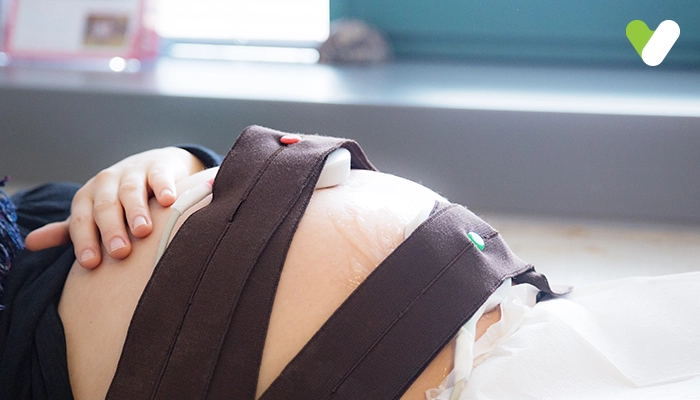Pregnant women are expected to take maternal care seriously from the very day that they find out that they are pregnant. However, a lot of women will admit that although they did their first trimester tests diligently, and stopped smoking and drinking if they did previously, the first trimester was largely a breeze. They will tell you that things tended to take on a more serious air once the second trimester kicked in.
To be fair, you must be diligent, careful and mindful right through your pregnancy, and lead a healthy lifestyle all the way from the first trimester and through breastfeeding. However, a lot of women have other children, ageing parents and demanding jobs that do not magically take care of themselves when the woman finds that she is pregnant. A lot of women work all the way until a few weeks prior to delivery, and especially if you are working from home, there is very little reason for you to give up on any other aspects of your life, unless you want to.
That said, there is no good excuse for not undergoing requisite second trimester maternity tests so that you can safeguard your own health, and that of your baby. Your belly and the foetus are growing visibly at this stage; this serves to not only sensitise people in your environment, but also serves as a constant reminder for self-care. Moreover, the growing foetus needs to be tracked; its heartbeat must be observed and monitored. And of course, there is the joy that parents feel at the first glimpse of their child in an ultrasound test. However, it's not just about catching a glimpse of your baby, but about tracking their health, growth and progress.
Top Purpose of Second Trimester Maternity Tests
While the first trimester maternity tests are primarily used to eliminate genetic defects and STDs, second trimester maternity tests observe your health as related to how it will impact your pregnancy. As one might expect, second trimester maternity tests also track the growth of the foetus and monitor the baby’s health.Here are some of the factors that your ob-gyn is looking to find about:
In the mother:
- Gestational diabetes
- Haemoglobin levels
- Hematocrit levels
- Depression
In the baby:
- Heart rate
- Any telltale signs of ill health or any other problems
- Birth defects
Top 5 Second Trimester Maternity Tests
It is important to note that four of these five tests are pretty much non-negotiable, but the fifth is left to the discretion of the parents. For tests with a specific window, it might be preferable for mothers to set appointments in advance, especially if you have selected an especially popular ob-gyn.-
Foetal Ultrasound:
It's photo time! Parents are always most excited (and also most anxious) about the first foetal ultrasound. You will also zero in more conclusively on the due date and get to see your baby. Any problems with the foetus will also show up here. It must be done prior to the conclusion of 20 weeks.
-
Non Stress electronic foetal heart monitoring:
Again, people love to hear the sound of their baby’s heartbeat. However, the test is also aimed at tracking the foetus’ health and wellbeing. This test must be undertaken 20 weeks into the pregnancy or a little later.
-
Glucose Tolerance Test:
Gestational diabetes is a serious issue that can result in a very large foetus, that in turn creates problems during delivery/ birth. The baby might also be more likely to have child or adolescent diabetes if the mother had gestational diabetes. Check for gestational diabetes somewhere between weeks 24 and 28 of your pregnancy.
-
CBC:
Most of us have undertaken a complete blood count several times, or at least once, in our lifetimes. Be sure that the CBC checks for hemoglobin and hematocrit because you must compulsorily eliminate anemia. Anemia can result in premature birth and low baby weight, However anemia is easily fixed with supplements or a higher food-based intake of iron. You don’t want to overdo it either, so test and then figure a course of action with your doctor, if required.
-
Tests for Birth Defects
Do you want to know? What will you do with the information? These are the questions that the parents-to-be must ask themselves before they undertake any testing for birth defects. Some options include:
-
- Triple or quad (substance) screening
- Integrated screening
- Amniocentesis
Treatment Improvement Protocols (TIPs) in Second Trimester
This is no test, but more of a screening process, for depression.Mental health awareness is increasing in India, but for some of you reading this, it might still be a little challenging to digest. However, consider how ignoring this aspect might impact your relationship with your child, and cause serious pregnancy and birth process complications.
Depression is fairly common in pregnant women and postpartum depression is even more common. Global figures stand at 50% to 75% of women experiencing depression during pregnancy and postpartum (that means the period after delivery). The figures in India, cited by experts, are far lower. Experts place pregnancy depression figures at a little under 15% and postpartum depression figures at a little under 20%. Although we might want to assume that Indian mothers are less prone, it might simply be that Indian women screen for depression far less. Be sure to get screened and to treat any depression that you may be facing because, left untreated it can not only affect your pregnancy, but also become a full fledged issue that does not go away after the pregnancy and postpartum period.
Depression in pregnant women in the Instagram era might also be worsened by low self esteem because women might find themselves less attractive in their posts, or might not receive the same kind of attention.


